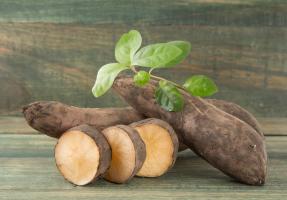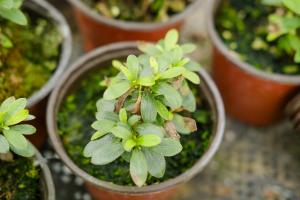Are Plastic Pots Bad for Plants?
Plastic pots are commonly used in gardening due to their affordability and durability. However, there has been some debate about whether plastic pots are bad for plants. While plastic pots do offer certain benefits, they can also have negative effects on plant growth and health. In this article, we'll explore the pros and cons of plastic pots and offer some tips on how to use them in your garden without harming your plants.
Pros of Plastic Pots
Plastic pots are popular among gardeners for many reasons. Here are a few benefits to using plastic pots:
Affordable: Plastic pots are very affordable and widely available, making them a budget-friendly option for gardeners.
Durable: Plastic pots are long-lasting and can withstand extreme weather conditions, making them a great choice for outdoor use.
Easy to Clean: Plastic pots are easy to clean and sanitize, which can help prevent the spread of plant diseases.
Cons of Plastic Pots
While plastic pots do have benefits, they can also have negative impacts on plants. Here are some cons of plastic pots:
Retention of Moisture: Plastic pots can retain moisture, which can lead to overwatering and root rot.
Non-Porous: Plastic pots are non-porous, which means that they don't allow for air circulation in the soil. This can lead to poor root development and stunted growth.
Chemicals Released: Some plastic pots can release harmful chemicals into the soil, which can be harmful to plants and the environment.
Tips for Using Plastic Pots
Despite their negative effects, plastic pots can still be used in the garden if used correctly. Here are some tips for using plastic pots:
Choose High-Quality Pots: Opt for high-quality plastic pots that are free from harmful chemicals and BPA-free. Check the recycling code on the bottom of the pot - anything with a code of 1, 2, or 5 is considered safe for gardening.
Avoid Overwatering: Be careful not to overwater plants in plastic pots to prevent root rot. Allow the soil to dry out between waterings.
Use a Good Potting Mix: Use a high-quality potting mix that provides good drainage and aeration for the soil.
Consider Alternatives: Consider using alternative materials, such as clay or biodegradable pots, which allow for better air circulation and natural decomposition.
Conclusion
In conclusion, while plastic pots do offer some benefits, they can also have negative effects on plant growth and health. It's important to use high-quality, BPA-free plastic pots and to be mindful of overwatering and soil quality. Consider using alternative materials for your gardening needs to avoid the negative effects of plastic pots.

 how many times do yo...
how many times do yo... how many planted tre...
how many planted tre... how many pine trees ...
how many pine trees ... how many pecan trees...
how many pecan trees... how many plants comp...
how many plants comp... how many plants can ...
how many plants can ... how many plants and ...
how many plants and ... how many pepper plan...
how many pepper plan...






























